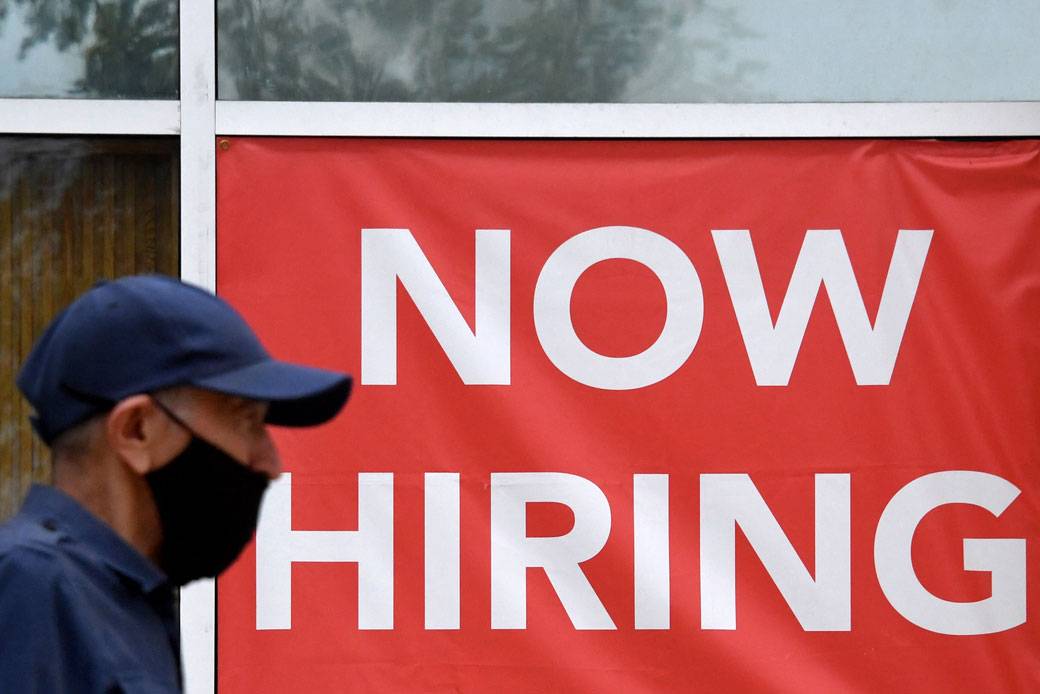

Unraveling the Labor Puzzle: Exploring the Challenge of Legal Work for Migrants Amidst the U.S. Labor Shortage

The U.S. labor shortage has been a pressing issue in recent years, with industries across the country struggling to fill job vacancies. One aspect of this shortage that often goes unnoticed is the challenge of legal work for migrants. While migrants play a crucial role in filling labor gaps, they face numerous obstacles and limitations that hinder their ability to contribute fully to the workforce.
One major challenge faced by migrants seeking legal work in the U.S. is the complex and often lengthy immigration process. Obtaining legal status can be an arduous and expensive process, requiring extensive paperwork, background checks, and interviews. For example, the H-1B visa, commonly used by skilled workers, has an annual cap that is quickly reached, leaving many qualified migrants unable to secure legal work authorization.

Even for migrants who do manage to obtain legal status, they often face discrimination and exploitation in the labor market. Employers may take advantage of their vulnerable position by offering low wages, poor working conditions, and limited job security. In some cases, migrants are forced to work in informal sectors or accept jobs below their skill level, resulting in underutilization of their talents and potential.
Furthermore, the current political climate surrounding immigration in the U.S. has created a hostile environment for migrants seeking legal work. Policies such as the travel ban, increased border enforcement, and the termination of certain immigration programs have heightened the fear and uncertainty among migrants. This discourages them from pursuing legal work opportunities, as they fear potential repercussions from immigration authorities.
However, despite these challenges, migrants continue to play a vital role in filling labor shortages in various industries. For example, the agriculture sector heavily relies on migrant workers to harvest crops. According to the U.S. Department of Agriculture, over half of the hired crop farm workers are unauthorized migrants. Without their contribution, many crops would go unharvested, leading to economic losses and food shortages.
To address the challenge of legal work for migrants amidst the labor shortage, several solutions can be considered. Firstly, streamlining the immigration process and reducing bureaucratic hurdles would help migrants obtain legal status more efficiently. This could involve increasing visa quotas for in-demand occupations, implementing faster processing times, and simplifying the application process.
Secondly, improving labor protections and combating exploitation would ensure that migrants are not taken advantage of in the workplace. Strengthening labor laws, increasing enforcement efforts, and promoting awareness of workers' rights would help create a fair and equitable work environment for migrants.
Lastly, adopting more inclusive immigration policies and fostering a welcoming environment for migrants would encourage them to pursue legal work opportunities. This could involve providing pathways to citizenship, implementing comprehensive immigration reform, and promoting diversity and inclusion in the workforce.
In conclusion, the challenge of legal work for migrants amidst the U.S. labor shortage is a complex issue that requires comprehensive solutions. By addressing the barriers faced by migrants, such as the immigration process, discrimination, and the hostile political climate, the U.S. can harness the full potential of migrants and alleviate the labor shortage in various industries.
References:
1. U.S. Department of Agriculture. (2021). Farm Labor. Retrieved from https://www.ers.usda.gov/topics/farm-economy/farm-labor/
2. Migration Policy Institute. (2021). The H-1B Visa Program. Retrieved from https://www.migrationpolicy.org/article/h-1b-visa-program
3. National Immigration Forum. (2021). Immigration Reform. Retrieved from https://immigrationforum.org/issue/immigration-reform/
Related Posts
© 2025 Invastor. All Rights Reserved

User Comments